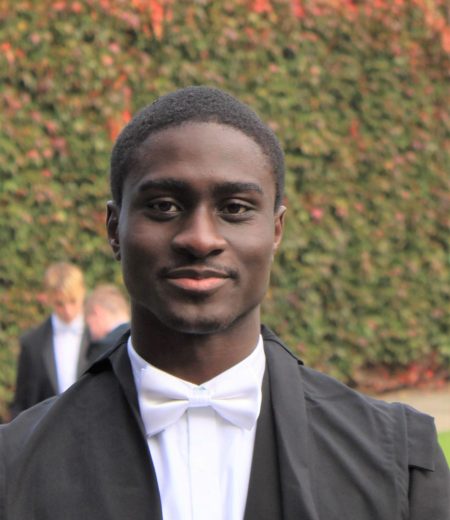
Hi! I’m Richard and I study Chemistry at St Catherine’s College, Oxford. I have always been the science type so the Chemistry degree at Oxford was perfect for me since it was a good mix of all the sciences and maths.
In a typical week, you would have 10 lectures (2 a day) scheduled at 9-11 and you’d also have two labs a week from 11-5 (with a break for lunch thankfully). Generally, you would have 1-2 tutorials a week with a problem sheet for those tutorials that should take about 6 hours to complete but may take more or less time depending on your individual strengths and weaknesses. You also have a maths class every week which will generally be with all the people on your course at your college. Separate maths problem sheets are also set which should take around 4 hours to finish. Physics classes are also scheduled into the timetable, but you will only have a couple in a term. These classes are primarily aimed at students who have not done physics A-level or equivalent but are quite helpful even if you have.
My interview experience was nerve-wracking at first (as you would expect) however the tutors will chat to you briefly beforehand which definitely helps calm you down. They usually begin with asking a few basic questions to ease into the interview. One thing that will really help is making sure you know your A level/equivalent content very well, it’s even worth reading ahead to help familiarise yourself with some of the topics you have not covered (particularly for organic chemistry).
During the interview, it is likely you will be asked something you have no clue about. At this moment it is important to not panic (which is easier said than done) and build off simple ideas you know from A level or equivalent courses, remembering to think out loud. Once you just start speaking, you will probably find you can come towards some sort of logical answer. Saying this, it’s important to not be too rigid in your argument, there are many things you have not yet encountered in chemistry. This means if you feel like the interviewer is leading you in a certain direction, you should explore it as much as possible and try to see where they are pointing you. You should keep in mind the interviewer isn’t necessarily looking for the correct answer, they’re looking for a logical thought process, so don’t worry if you think you got it wrong!
When you’re applying to Oxbridge, you will want your personal statement to be very academic, i.e. only about 10% should be on extracurriculars that aren’t related to your degree (a few lines at the end will do). You want to make sure you are demonstrating your interest in studying the field at deeper level than what is offered at Sixth form/college and you can do that by putting down any reading you have done, lectures you’ve attended and competitions like the Chemistry Olympiad (and more importantly what you’ve learnt from each of them). Around 90% of people get interviewed so don’t worry about trying to make your personal statement be “unique” – a solid standard one will suffice. The “Why Chemical Reactions Happen” by James Keeler is very popular but is probably the best book to read that will actually help you during the application process – it teaches a lot of concepts that are just beyond A-level that you would learn in your first year and definitely helps you to better understand the concepts you have already encountered.
Overall, Chemistry at Oxford is known to be one of the heftiest degrees in terms of workload and contact hours but, if you have a genuine passion for Chemistry and science in general, you will definitely enjoy your time!
